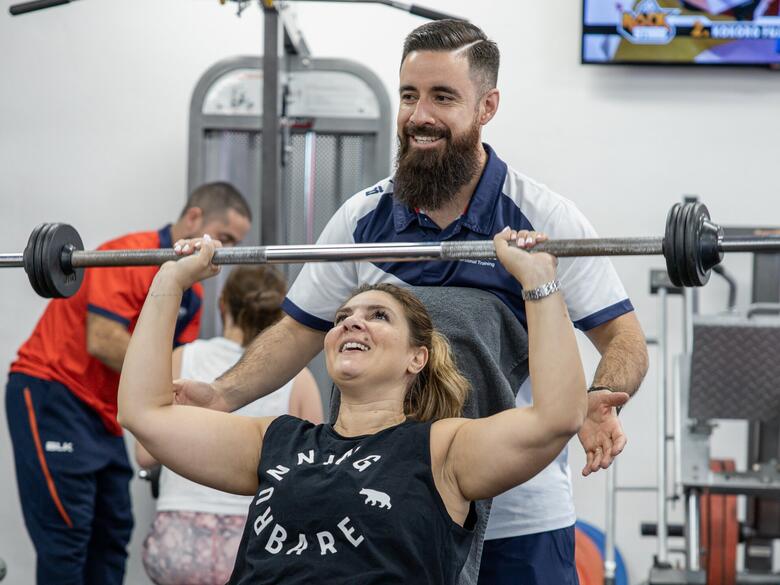When you are strength training, chances are you don’t want to just show up and mindlessly shift weights around and then go home. People participate in strength training for many reasons, be it weight control, strength gains or general health improvement. Whatever your goal, you go to the gym and you work hard so you want to see results.
We know that performing an exercise with good form is important. If you’re not sure how to execute a particular exercise, make sure you seek help from a qualified coach. Research shows that building a strong mind to muscle connection (MMC) is also important if you want to achieve significant gains.
A strong MMC ensures conscious and deliberate muscle contraction and is the difference between passively and actively moving a load. When focusing on specific muscles, the brain switches focus to those muscles and recruits more muscle fibres to complete the movement. It also prevents “innervating” of muscle fibres not in use, thus ensuring the right muscles are used. But how do you improve the MMC?
First, minimise distractions so that you can focus on the movement you are about to perform. Your brain cannot focus on a movement when it is focused on something else (for example, the television). Complete warm-up sets of the exercise with little to no weight. This will help you to focus on engaging the correct muscle/muscle group before adding weight. You really want to concentrate, or “think”, about the muscle you want to target during an exercise. For example, during bicep curls, focus on the muscles at the front of the upper arms as you bend your elbows and move the weight towards your shoulders.
A great way to improve MMC is to increase the time under tension. Generally speaking, the slower the tempo of the repetitions, the longer the time that the muscle is under tension and the better the brain is able to communicate with the muscle fibres of the target muscle/s. This can be done by:
- Pausing during peak contraction (e.g. squeeze the glutes at the top of the hip thrust – the mind has to focus on holding a position);
- Slowing down the eccentric portion of an exercise (e.g. slowly pushing back up to the start position of a push-up – the mind has to focus on slowing the movement);
- Performing exercises with isometric contractions (e.g. plank – the mind has to focus on holding a position).
When starting a new movement, it’s important to identify cues specific to different parts of the movement, and mastering those cues before moving on. Take bench press as an example. The cues to consider are setup, lowering the bar and pressing the bar up again. You will want to focus on first being able to position your body correctly on the bench, bracing and engaging the upper body and safely lifting the bar off the rack. Once you can complete the setup with minimal thought, then move onto lowering and pressing the bar. Your coach can also assist with building a strong MMC by gently touching the muscles that you should focus on during the exercise. For example, the lats during the lat pulldown. This can be particularly helpful for someone who has never trained, or who has not trained for a while.
Breaking up a movement into multiple cues, and focusing on each individual cue allows the MMC to gradually strengthen over time, and once you’re ready to lift heavy, you will have a solid foundation which will help you maintain good form and thus reduce injury.
We have helped many people achieve their health and fitness goals and would love to do the same for you. Whether you are interested in working out at one of our impressive studios or you’d like a personal trainer who can help you create an effective New Year workout plan to follow at home, please don’t hesitate to call or message us today!

